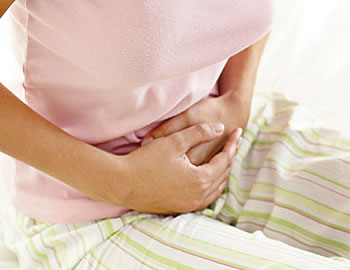However, some women who have had normal periods which later become painful may have secondary dysmenorrheal. This condition is usually accompanied by a problem affecting the uterus or other pelvic organs. Any woman experiencing menstrual pains should see a doctor without delay.
If home treatment is not successful in relieving your menstrual pain, there are a number of medical treatment options. Treatment will depend on the severity and underlying cause of the cramps. If the pain is caused by Pelvic Inflammatory Disease (PID) or Sexually Transmitted Disease (STI)s, these need to be treated. The doctor will prescribe antibiotics to clear the infection and medication to help with the pain.
The doctor may also suggest that you try hormonal birth control. These are menstrual pains controls in the form of a pill, patch, vaginal ring, injection, or implant these are used to prevent ovulation, which can control menstrual cramps.
Surgery is an option for menstrual pains, if the pain is caused by uterine fibroids. Surgery will be done to remove any endometriosis implant, uterine fibroids, or cysts. It is common to experience an ache in the lower abdomen, back and tops of legs, especially in the first few days of the period. The first two days are usually the worst. Some women have more pain than others. Painkillers or anti-inflammatory painkillers usually ease the pain if it is troublesome.
It is important for a woman to see the doctor when you experience any of these signs stated below:
Heavy periods: Heavy periods (menorrhagia) is common, and it is usually not something to worry about because of our different body make up and also because, it is difficult to measure blood loss accurately. Periods are considered heavy if they cause such things as flooding, that is the need for double sanitary protection, soaking of bedclothes, passing clots, or if your normal lifestyle is restricted because of heavy bleeding.
However, it is important for you to see your doctor if your periods change and become heavier than previously. There are various causes of heavy periods. However, in most women, the cause is unclear and there is no abnormality of the womb (uterus) or hormones
Bleeding at abnormal times: If you experience vaginal bleeding at times apart from your expected periods, you should see a doctor. This includes if bleeding occurs after you have sex, or after the menopause. There are various causes of bleeding between periods. One common cause is called breakthrough bleeding, which is small bleeds that occur in the first few months after starting the contraceptive pill. This usually settles over a few months.
Periods which stop (amenorrhoea): Pregnancy is the most common reason for periods to stop. However, it is not uncommon to miss the odd period for no apparent reason. However, it is unusual to miss several periods unless you are pregnant. Apart from pregnancy, other causes of periods stopping include stress, losing weight, exercising too much and hormonal problems. As a rule, it is best to see a doctor if your periods stop for at least six months without explanation.
WATCH TOP VIDEOS FROM NIGERIAN TRIBUNE TV
- Let’s Talk About SELF-AWARENESS
- Is Your Confidence Mistaken for Pride? Let’s talk about it
- Is Etiquette About Perfection…Or Just Not Being Rude?
- Top Psychologist Reveal 3 Signs You’re Struggling With Imposter Syndrome
- Do You Pick Up Work-Related Calls at Midnight or Never? Let’s Talk About Boundaries







